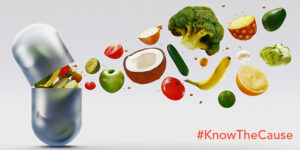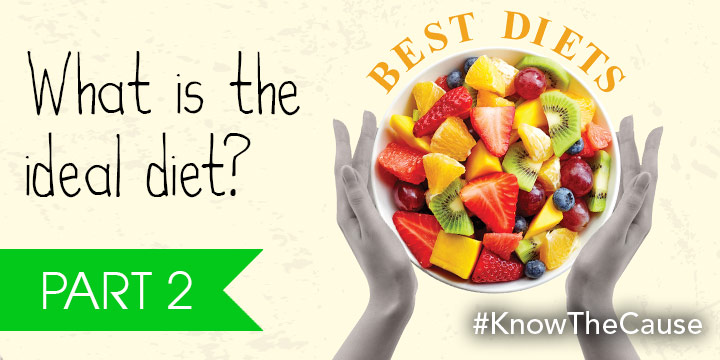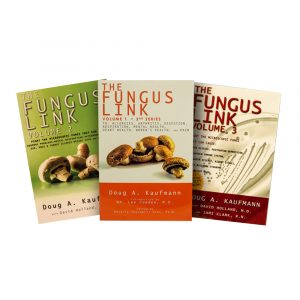

In a world full of information, disinformation, and conflicting opinions, is it possible to discern what the ideal diet might be? We know that focusing on whole and minimally processed foods that come straight from the earth is the best way to ensure we are getting the nutrition we need to enjoy optimal health. These include foods like vegetables, fruits, meat, poultry, fish, eggs, and nuts. We should focus on healthy sources of fat, getting enough fiber, and a wide variety of foods to ensure a full spectrum of nutrition. This is the simplest and most fool-proof way you craft an ideal diet.
There are some other things to consider if we are to craft a diet that promotes excellent health. Importantly, the role that yeast, mold, and fungi in general must be considered when it comes to our diets.
You may be thinking, what do mushrooms or the stuff they use to make bread rise or beer ferment have anything to do with our diet, or my health? The role that fungi play in our diet is actually far more nuanced than just eating mushrooms or bread; in fact, fungi may have much to do with many of the health problems people experience today.
 First, it is important to know that yeasts and molds are common contaminants of many foods and not just the leftovers you leave in the fridge too long. Fungal contamination is actually a pervasive and systemic problem with many foods, particularly wheat and corn. Peanuts, pistachios, and foods like soy and potatoes are also susceptible, as are many others. These fungi can also produce poisons known as mycotoxins under certain conditions, and these poisons can subsequently contaminate the foods that wind up on our plate.
First, it is important to know that yeasts and molds are common contaminants of many foods and not just the leftovers you leave in the fridge too long. Fungal contamination is actually a pervasive and systemic problem with many foods, particularly wheat and corn. Peanuts, pistachios, and foods like soy and potatoes are also susceptible, as are many others. These fungi can also produce poisons known as mycotoxins under certain conditions, and these poisons can subsequently contaminate the foods that wind up on our plate.
This may be more common than many people think, which means if you are regularly eating foods containing wheat, corn, or peanuts, there is a very good chance you are routinely getting exposed to small amounts of these poisons. And these poisons can have detrimental effects on our health. One example of these poisons is aflatoxin B1, which is among the most carcinogenic, naturally-occurring substances on earth.
Furthermore, certain fungi and yeasts can actually infect humans and cause serious health problems. This is well-documented in the medical literature, but the extent to and frequency with which fungal infections are a problem might be grossly underestimated by most doctors. Fungal problems can be difficult to diagnose, but many practitioners believe fungal infections (particularly those that begin in the gut, a problem known as dysbiosis) may be the root of many common health problems.
So, to maximize our health, our diet should be inherently anti-fungal and anti-mycotoxin. This means two things. First, foods like corn, wheat, and peanuts should be eliminated to reduce the risk of mycotoxin exposure, along with any other fungi, yeast, or mold-containing foods, i.e., mushrooms, bread, alcoholic beverages, or mycoprotein.
Secondly, our diet should remain very low in sugar and starchy carbohydrates, because these are the kinds of foods which pathogenic fungi need to survive, they constantly require a steady supply of these foods. If you do have a yeast infection in the gut, some form of systemic fungal infection, or even visible, topical fungal infections, those yeasts and fungi will require sugar for their survival. Diet is one of the best tools available for eliminating pathogenic yeasts and fungi from the body, which may help resolve many health problems you may be experiencing.
This is what The Kaufmann Diet is in a nutshell––an anti-fungal program designed to starve yeasts and fungi and eliminate exposure to mycotoxins. It is a whole-foods approach to eating that includes a wide variety of plant and animal foods, providing all of the protein, healthy fat, carbs, fiber and broad spectrum of nutrients needed to support overall health and vitality.
What is the Ideal Diet? Part 1
Join our LIVE Q&A stream every week if you would like to ask a question! Learn more about the live show and join in here: KTC Too! – Doug Kaufmann’s Know the Cause
Doug Kaufmann has written many books that cover a full range or health issues. Find out which of his books best suits you by clicking the button below.
Doug Kaufmann developed his diet after years studying the clinical effects of pathogenic fungi on the body. Fungi and yeasts can become parasitic organisms on and inside our body, causing health problems that can be difficult to diagnose. Learn more about the Kaufmann Diet, change your life and know the cause.
We encourage all visitors to this site to take some time and study these technical articles prior to initiating lifestyle changes, including dietary changes and to do so with their physician’s awareness and approval. The articles posted in this link are scientific and with few exceptions are taken from medical journals familiar to healthcare workers.
Looking for help assembling antifungal Kaufmann Diet approved recipes for breakfast, lunch or dinner? We have several videos, books and recipe write ups here on Know the Cause that will help your health journey. The recipes in this section are so good, you’ll feel like you’re indulging. No sacrifice needed! Enjoy.
© 2024 Mediatriton Inc. All Rights Reserved • Website by Skynet Solutions